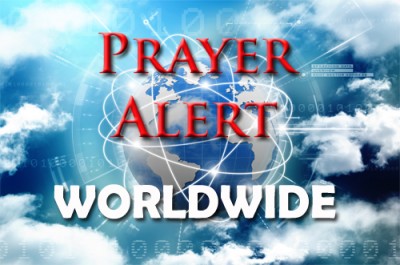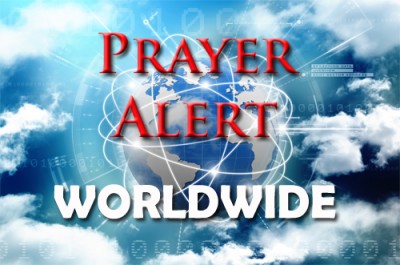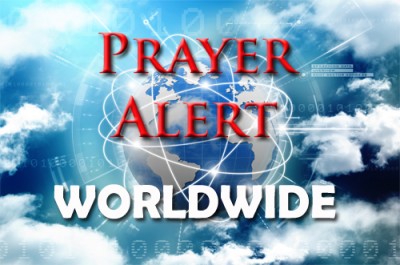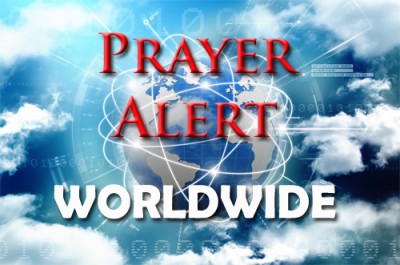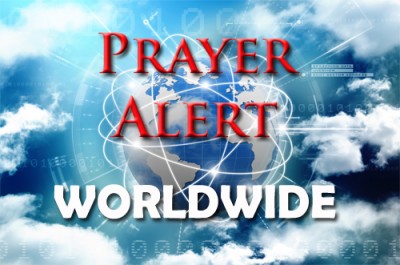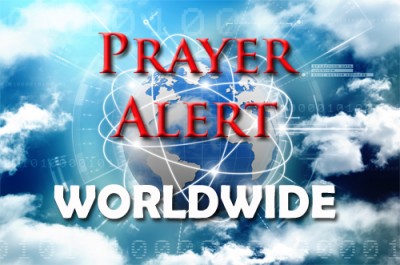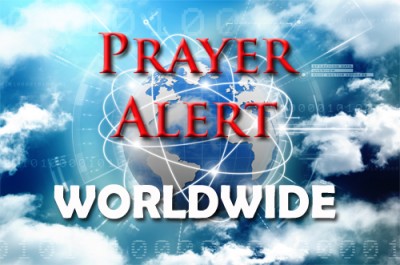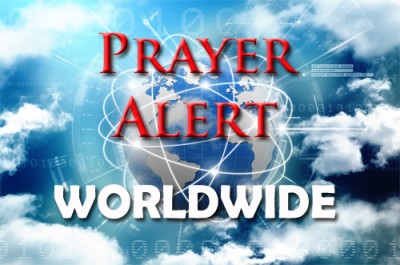DRC: Christian persecution
04 Mar 2021Over a dozen lives are claimed in nightly raids in the Democratic Republic of the Congo. On 1 March Italian diplomats and World Food Programme workers were killed in an attack on a UN convoy. Officials blame the Allied Democratic Forces, or ADF, for this incident - the latest in a disturbing trend. Armed groups have killed over a thousand civilians in eastern DRC since late 2019. ‘In 2021, we’ve seen mass attacks by these Muslim extremists,’ said Voice of the Martyrs Canada. There are more than 100 armed groups operating in DRC. Not all of them are Islamic, but those that are have one goal in mind. They are radical, and even though they may have lost some control in places like Iraq and Syria they’re doing whatever they can to cause destruction, particularly where a large majority of people are Christian.
Venezuela: Christians forced to eat their Bibles
04 Mar 2021Four Christian men were beaten and scarred by knives carving Xs on their skin, and forced to eat sheets of the Bible in a recent shocking incident in Venezuela. The perpetrators are believed to oppose the work of Restoration House, a church-led drug rehabilitation programme in the city of Libertador, which the four victims had joined. Threats had been made against the house before the attack. In Latin America, the illegal activities of drug gangs are endangered by churches who deter people from criminality. This can lead to opposition, which explains this latest Venezuelan incident. The men have since been discharged from hospital. One remains in particularly poor health, with injuries to his lungs and head and two broken ribs. Two others have their legs and arms in casts. Pray for God to surround them with His healing presence, and that they will continue their recoveries from drug addiction and grow in their walks with Jesus.
Myanmar: update
04 Mar 2021Myanmar's military fired the country's ambassador to the UN after he called for the army to be removed from power. The security forces are intensifying their crackdown on protesters with live ammunition, killing many. A police major resigned in a show of solidarity with anti-coup protesters, saying, ‘I don’t want to continue serving under the current military regime.’ He had been with the Special Branch since 1989. See Christians in the country are asking for help because they have lived under military leadership for decades. They don’t want it back. But the church is not all aligned. Some think they need to be peaceful; others are more activist in nature. Please pray for the safety of Christians in Myanmar. Asian Access said, ‘If you have any way of connecting with people there, sending them words of encouragement is a huge help. You could even send messages to asianaccess.org. We could send those messages along, and say, “People are praying for you, they care about you”.’
Thailand: refugee camps for Myanmar’s homeless
04 Mar 2021Handicap International’s involvement in Thai refugee camps gives children the opportunity to be a cared-for child. Being a child in poverty and stress is particularly challenging if you are disabled. Since 1984, Thailand has sheltered people fleeing Myanmar’s violence in camps along the border. Some refugees were born in the camps and have never set foot outside. Most are Karen, a mixed people group without a shared language or religion. Since the 1940s, ongoing conflicts between Karen separatists and the Burmese army have forced many to flee. 400,000 Karen people are homeless. Camp conditions are extremely poor; in the past cholera and malaria have occurred. Children suffer from chronic malnutrition and respiratory infections. There is no electricity, phone signal, healthcare, or education.
Global: Bible societies on the brink of closure
04 Mar 2021From Belarus and Portugal to Sri Lanka and Suriname, Bible Societies are facing financial collapse in countries hardest-hit by the pandemic. Two thirds of Bible Societies around the world now face significant survival challenges: 20% risk immediate closure. However, we can thank God for $4.1 million given to them by a global Solidarity Fund, to provide finances for staff salaries, Bible translations, and continued work on essential outreach projects.
Egypt: Muslims to help build churches
04 Mar 2021Egypt will now allow Muslims to build Christian churches as paid labourers. In the past, Muslims have often seen this kind of work as taboo. The pronouncement allows them to help build any of the 44 churches now under construction around Egypt. They can also join the work on 16 historic Coptic churches now being restored. Tom Doyle of Uncharted Ministries says, ‘This is a big step. This is the government saying, “We are giving our okay for this”. And that’s another good sign. So we are thankful for that, and pray that there will be better relations between Muslims and Christians. We know as Muslims become exposed to the Gospel and see the joy of the Lord in believers, it is attractive to them. They want to know more. Saudi Arabia is the heart of Arab Islam. But Egypt is the brains of Arab Islam.’
Nigeria: kidnapping scourge
04 Mar 2021The 2014 kidnap of 276 Chibok schoolgirls brought global attention to raids on schools in Nigeria. Now criminals are making money with copycat crimes. Nearly 300 girls were kidnapped from a boarding school last week, then released four days later after a ransom was paid. One girl said, ‘Most of us got injured, and we could not carry on walking. They said they would shoot anybody who did not continue walking. We walked across a river and they let us sleep under shrubs in a forest.’ Their release was secured through negotiations between government officials and the abductors. Kidnapping for ransom is a widespread criminal enterprise. Both rich and poor are seized by gunmen on almost a daily basis. Security personnel have also been held. The aim is to secure someone's release by raising funds from friends and relatives - or even selling their assets.
USA: Trump back in politics
04 Mar 2021Former president Donald Trump returned to the spotlight at the annual Conservative Political Action Conference. He stated, ‘The Republican Party is going to unite and be stronger than ever before. I am not starting a new party.’ He focused much of his speech on criticising the first few weeks of President Biden's administration, making it clear he wants a leading role in the GOP in future. With the 2022 midterms just around the corner, he wants Democrats defeated, also each GOP lawmaker who voted for his impeachment.
